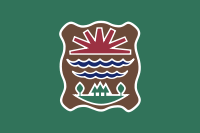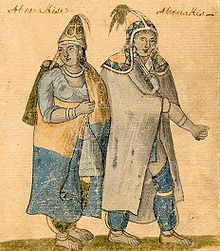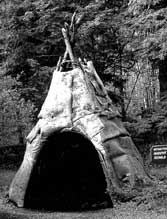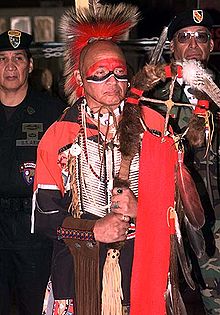Summary | Excerpt | Reviews | Beyond the Book | Read-Alikes | Genres & Themes | Author Bio

A Novel
by Kieran ShieldsThis article relates to The Truth of All Things
One of the main characters in Kieran Shield's The Truth of All Things, Perceval Grey, is of Abenaki descent, a key point in the novel. The Abenaki (ah-buh-nah-kee) tribe is one of the many distinct tribes that make up the larger Algonquian (al-GON-kee-un) Nation of North America. (It is important to note that the Algonquian Nation, should not be confused with the smaller Algonquin Tribe.) The Abenaki people are native to the New England region of the United States, including Vermont, New Hampshire, Massachusetts, New York and Maine; as well as Eastern Canada: Eastern Quebec, New Brunswick, the Canadian Maritime Provinces, Nova Scotia, and Prince Edward Island. They call this region Wobanakik or "Place of the Dawn."
 The Abenaki people group themselves into smaller, more localized subdivisions.
According to tolatsga.org, "Abenaki is actually a geographical and linguistic (rather than political) grouping... [For centuries] several tribes would unite under a powerful sachem for purposes of war, but the Abenaki were noteworthy for their general lack of central authority. Even at the tribal level, the authority of the sachems was limited, and important decisions, such as war and peace, usually required a meeting of all adults... In many ways the lack of central authority served the Abenaki well. In times of war, the Abenaki could abandon their villages, separate into small bands, and regroup in a distant refuge beyond the reach of their enemies. It was a strategy that confounded repeated efforts by both the Iroquois and English to conquer them. The Abenaki could just melt away, regroup, and then counterattack. While an effective strategy in times of war, it has left the impression that the Abenaki were nomads." However, they were not.
The Abenaki people group themselves into smaller, more localized subdivisions.
According to tolatsga.org, "Abenaki is actually a geographical and linguistic (rather than political) grouping... [For centuries] several tribes would unite under a powerful sachem for purposes of war, but the Abenaki were noteworthy for their general lack of central authority. Even at the tribal level, the authority of the sachems was limited, and important decisions, such as war and peace, usually required a meeting of all adults... In many ways the lack of central authority served the Abenaki well. In times of war, the Abenaki could abandon their villages, separate into small bands, and regroup in a distant refuge beyond the reach of their enemies. It was a strategy that confounded repeated efforts by both the Iroquois and English to conquer them. The Abenaki could just melt away, regroup, and then counterattack. While an effective strategy in times of war, it has left the impression that the Abenaki were nomads." However, they were not.
During the summer months, along with fishing, trapping, hunting, and food gathering, the Abenaki People subsisted largely on crops (usually corn, squash, and beans) and practiced crop rotation. Some of their farms were quite extensive. One group, off of Lake Champlain, supposedly grew more than 250 acres of corn at one time. As the seasons changed, the Abenaki migrated inland where it was warmer, and they lived in conical wigwams that they covered with bark and animal skins to keep out the cold weather.
 |
 |
 |
The word "Abenaki" can be translated to mean "People of the Dawn," "People of the East" or "People of the Morning." Presently, the Abenaki language is considered endangered and the Abenaki are not federally recognized in the United States as a tribe, however, small progress is being made: in 2006, Vermont became the first state to acknowledge the Abenaki as a people. More recently, according to 500 Nations, in April of 2011, Vermont officially recognized the Nulhegan Band of the Coosuk Abenaki Nation and the Elnu Abenaki Tribe. In this case, recognition means that they are eligible for certain designated scholarship funds, and that they are allowed to rightfully use the "native made" label on arts and crafts.
During the time of The Truth of All Things (late 19th century), the Abenaki population had been experiencing a dramatic decrease in population. Owing to the introduction of diseases - such as smallpox, typhus, diphtheria, and influenza - by European explorers and fishermen, numbers dropped from an estimated population of 40,000 in the 16th century, to fewer than 1,000 in the 18th century. Today, however, numbers are climbing; approximately 12,000 people of Abenaki heritage live in the United States and Canada.
Images from top to bottom:
Flag of St. Francis/Sokoki Band of Abenaki
Abenaki couple, 18th century
Abenaki wigwam
Abenaki man dressed in traditional clothing
Filed under Places, Cultures & Identities
![]() This "beyond the book article" relates to The Truth of All Things. It originally ran in April 2012 and has been updated for the
February 2013 paperback edition.
Go to magazine.
This "beyond the book article" relates to The Truth of All Things. It originally ran in April 2012 and has been updated for the
February 2013 paperback edition.
Go to magazine.
Your guide toexceptional books
BookBrowse seeks out and recommends the best in contemporary fiction and nonfiction—books that not only engage and entertain but also deepen our understanding of ourselves and the world around us.